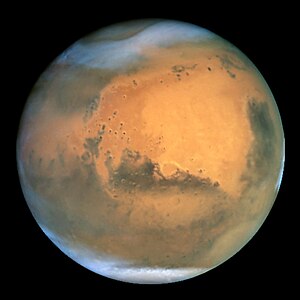 A recent CNN piece discussed the future of NASA, with a particular focus on the ‘spark’ that has been long since lost in the program. As it is argued, the early excitement in NASA came from human venturing to a new frontier for the first time – we were leaving this planet and looking to new horizons for humanity. We’ve always thought big, but that has come with some overlooked frontiers right here on Earth.
A recent CNN piece discussed the future of NASA, with a particular focus on the ‘spark’ that has been long since lost in the program. As it is argued, the early excitement in NASA came from human venturing to a new frontier for the first time – we were leaving this planet and looking to new horizons for humanity. We’ve always thought big, but that has come with some overlooked frontiers right here on Earth.
As the article states, we (particularly Americans) strive for bigger and better at all cost. This is true with exploration as well. We want to be the first…to the bottom of the sea, to the moon, and to Mars…the latter being the potential next step. On one hand, I can appreciate this drive that is inherent in human nature – to be the first to make a bold move to uncharted territory…it broadens the gap from the competition, though of course the rewards are not without tremendous risk of all shapes and sizes.
A successful campaign however, is full bodied. We need to not only extend to these new horizons and plant our flag, but then go on to find value in the exploration, colonize the space as needed to reap the benefits of our being there, and then move on. This quest never came full circle with the moon, which leads me to question the motives on a human Mars mission.
Yes, a human journey to Mars would be a huge statement…I’d love to be on that mission myself. But, once we get there, we’d better have a plan, as that could very well be HUGE dollars spent on a ‘stunt’ and nothing more. It can’t be about just being first…it has to be about a sound mission strategy. While many can argue that an extended human journey in space is the necessary sex-appeal to jump start some excitement in the next generation of space exploration; much, much more is required…and these are fundamental elements with any exploration programs – a solid vision, sound leadership, those willing to push beyond our technological and psychological limits, and a means to measure ‘value’ in the work. Within the institution of NASA itself, I am not convinced that a frontier push can be accommodated – too much risk. I believe the vision and drivers need to come from the private sector, with NASA’s endorsement and contributions to make it happen.
 Image via Wikipedia
Image via WikipediaA robot mission? Not interesting, not sexy, not intriguing to the human spirit. For people to boldly go where no one has gone before strikes each and every one of us right at home. It’s that same excitement that we all experienced as a kid as we turned over a rock, eager to see what lies beneath…it is in our hearts and soul to experience our surroundings, absorb information, then process and share it with our peers. Sorry, but no robot on the planet can talk to me and get me excited about exploration. The personal journey to get there though…now that is worth paying attention to.
So, what and where will it be…well, I beg of you NASA – think big, but don’t forget about the alien environments right here on Earth. Turning our focus inward would be a game changer.
Related articles
- NASA head: U.S. will still lead despite shuttle’s end – Washington Times (mbcalyn.wordpress.com)
- Would you go to Mars, knowing you’d (probably) never come back? (windsorstar.com)
- New Unmanned MissionTo Mars Planned for 2016 (foxnews.com)
- NASA Wants To Send Astronauts To Mars Within 20 Years (mashable.com)
- Hold up on Mars exploration delays sample return mission (earthandsolarsystem.wordpress.com)
- The Last Space Shuttle And The Dawn of a New Era (ebongeek.com)


